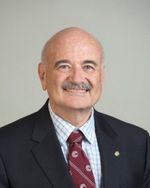Last year, The New York Times contributor Haider Javed Warraich, MD, a 29-year-old physician-in-training, wrote that experienced (perhaps older) physicians may not be the best prepared to care for patients. They tend not to pay attention to more recent peer-reviewed literature, he argued, and are often prejudiced by older practice patterns, which Dr. Warraich referred to as “malignant relics of the past.” The piece stimulated much discussion in the senior ophthalmologist community. Today, Scope offers a counterargument from one of the Academy’s Senior Ophthalmologist Committee’s longtime members. We hope it is great food for thought for all.
– Samuel Masket, MD
Response from Alfredo A. Sadun, MD, PhD

I recently read The New York Times article by Haider Javed Warraich, MD, a cardiovascular medical fellow.
In it, he makes several points in favor of young physicians and with a jaundiced view of older physicians. In essence, he argues that “over time, I have begun to see my lack of experience as a strength.”
Dr. Warraich suggests that older physicians move aside not merely to make room for younger physicians, but because they mistakenly rely on their antiquated notions. He does make some valid points, but he misses out on others.
For example, Dr. Warraich is simply mistaken when he complains that the mentorship of younger faculty should be but is not a factor for academic promotions. Having sat on many such academic promotion reviews, I can assure him that both formally, as well as in fact, mentorship is an important factor for academic promotions at all levels.
Is experience necessary or, as he says, even a detriment to understanding medical science?
Firstly, I recall this argument from my undergraduate days at MIT. A student shared his resentment at having to fulfill his required four semesters of humanities study and added that philosophy could be understood from first principles, so he didn’t need to study Socrates.
I told him that Descartes had made much the same point. Only after reading Descartes did this undergraduate come back to me, somewhat abashed, for he recognized how much deeper a lifetime of reading and thinking had taken Descartes. And so, it often is. You don’t know what you don’t know until you learn more. Those students of mine who were most convinced that they knew it all already were the ones with the most to learn.
Dr. Warraich is not wrong when he criticizes the elder physician who places himself on a pedestal. But does he think that the senior physician has a monopoly on arrogance?
I’ve had the pleasure of knowing some of the many accomplished ophthalmologists of the modern era, and I’ve been impressed that most were humble, and none placed themselves over their patients. I've trained more than 300 residents and fellows, and I admit that a few remained arrogant. But age is neither necessary nor sufficient as a basis for arrogance.
This brings us to Dr. Warraich’s most important and valid point. It is true that young physicians today have better access to high quality clinical evidence through peer-reviewed publications. I also agree that the new emphasis on evidence-based medicine is a welcome sea change.
Digital access is now easier, and younger physicians display a greater facility in using this digital access. This is great, but the advantage is easily squandered if a young physician is unsophisticated and fails to appreciate how difficult it is to interpret peer review literature.
I encourage the medical students, residents and fellows that swirl through my clinic to regularly read and show me any new publications that interest them. Current publications are always welcome and sometimes even pertinent.
But, consistently, the house staff officer does not understand the limitations of the papers presented. Despite the fact that I’ve published over 300 peer-reviewed articles and have reviewed thousands under consideration for publication, I still make mistakes in interpretation. My experience has taught me that the titles and conclusions of papers are often not supported by the very data published. I’ve also learned that fundamental flaws in design are often overlooked until another study comes out several years later.
Another frequent mistake some make is to assume that association shown by a study means causation, even if obvious confounders are taken into account. Indeed, Dr. Warraich makes that very mistake when he cites a study that shows young physicians provide a better quality of clinical care and claims that this is because of their “lack of experience”.
Lack of experience was almost surely a surrogate that substituted for more recently educated. Review articles often mischaracterize the very papers they evaluate. But most of all, even in the best of circumstances, the conclusions only apply in special circumstances. The wise reader practices critical thinking and to understand that for each article there is a limited subpopulation for which the results of published work should apply. Such wisdom comes with experience.
When I review articles, I occasionally reject them with the comment that “failure to prove is not proof of failure.” Thus, the conclusion that a treatment doesn’t work may be mistaken; what the paper really has demonstrated is that it could not show a treatment effect.
Perhaps there were not enough patients, the outcome measure was poor or there was just too much noise in the data. Unfortunately, many such papers conclude, and their titles infer that it was the treatment that failed.
This is sort of medical science’s version of Kurt Gödel's incompleteness theorem that states that for any formal mathematical system, there will always be truths that are unprovable within the system. All of this critical thinking is enhanced from experience. I may not be as smart as I was just after medical school training, but I’m a far more skeptical reader.
This is not to put too fine point on it. We need to allow that experience and knowledge are not mutually exclusive, especially in regards to keeping an open mind in reviewing the literature. On the contrary, knowledge and experience set the perspective for the proper assimilation of new information.
Mark Twain famously said, “When I was a boy of 14, my father was so ignorant I could hardly stand to have the old man around. But when I got to be 21, I was astonished at how much the old man had learned in seven years.”
Dr. Warraich was right when he suggested that older physicians had much to learn from younger ones. I hope he realizes that the reverse is also true.
Response from Samuel Masket, MD

At the time I graduated from medical school in 1968, I distinctly remember that the cardiologist was king.
(Definitely not queen, as I cannot recall a female in that position during training. Fortunately, that trend has evolved.)
Working only with an EKG (echoes were in their infancy) and a stethoscope, he could make the most subtle diagnoses on teaching rounds, describing esoteric clicks, rubs and murmurs and demonstrating barely discernable P-wave alterations, etc.
Fifty years hence, technology is now king, and the cardiologist barely need touch the patient, given all the cardiac lab readouts available on the electronic health record (EHR). I also recall that during interviews for a 1968 internship position, I was asked by a prescient questioner to tell him what I knew about biomedical engineering. I had no idea what I was about to witness.
Consider the evolution of cataract and lens implant surgery. When I began doing IOL procedures in the mid-1970s, only the most skilled (and perhaps luckiest) of surgeons could get lenses into the eye without injuring other precious tissue because we had no ophthalmic viscosurgical devices (OVDs) to cushion the blow.
By affording greater time and space in surgery, OVDs greatly leveled the playing field and allowed surgeons of varying skills to achieve excellent outcomes routinely. Now the nascence of laser-assisted cataract surgery holds the potential to have very inexperienced surgeons (perhaps not even physicians, as we are very costly and time consuming to train) achieve the same outcomes as the seasoned veteran.
The megatrend of technology potentially supplanting skill (and jobs) is obvious in medicine, if only as a microcosm of all human ventures. This concept was brought to light in a recent opinion piece in The New York Times by Dr. Haider Javed Warraich, a 29-year-old postdoctoral fellow in cardiovascular medicine. He suggests that “as the field evolves into one where data and evidence are beginning to outweigh anecdotes and opinions, one thing is becoming increasingly clear: In medicine, a lack of experience may not actually be a bad thing.”
Going on, he referred to a paper from Harvard researchers that indicated that patients cared for by younger doctors were less likely to die, although the circumstances of that research were not stipulated. He asserts that other research demonstrates a “positive relationship between lack of experience and better quality of clinical care.” Is this really true? In our field, as an example, would a novice surgeon be better equipped to manage an unexpected suprachoroidal effusion or hemorrhage at surgery than would one who had “been there before?”
Nonetheless, Dr. Warraich asserts that the neophyte physician is likely to be more aware of newer modalities of care models, less steeped in outmoded “malignant relics from the past” and more likely to be concerned about the well-being of the patient. He seems to have a very jaded, and to my sense, inappropriate view of senior physicians, but he does make a strong point for mentoring and collaboration on both sides of the age line.
In that regard, he has my full agreement, because as he correctly indicates, nearly 25% of U.S. physicians are above the age of 65. All of that collective wisdom and experience must be transferred to the next generation of physicians, lest it be lost.